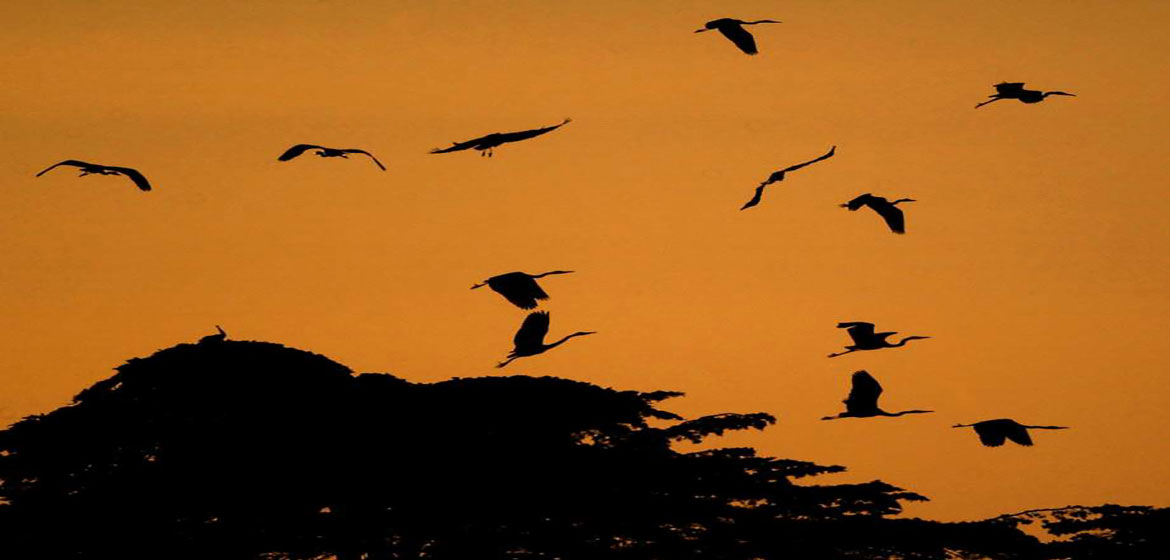By Felicia Fonseca, Associated Press
Indian Island off the coast of Northern California was the site of a massacre, a place that was contaminated by a shipyard and flush with invasive species.
It's also the spiritual and physical center of the universe for the small Wiyot Tribe, and it now belongs to them almost entirely after a city deeded all the land it owns on the island to the tribe during a packed signing ceremony Monday.
"It's a really good example of resilience because Wiyot people never gave up the dream," tribal administrator Michelle Vassel said. "It's a really good story about healing and about coming together of community."
The tribe was decimated in 1860, when scores of elders, women and children were wiped out during a raid by settlers while the tribe's men were away gathering supplies. Since then, the now 600-member tribe has been making small strides toward regaining the land it lost.
The tribe sold art and fry bread and took in donations to buy 1.5 acres (0.6 hectares) on the eastern tip of the island for $106,000 in 2000. Years later, the city of Eureka gave the tribe more land.
During the signing celebrated with a prayer, a traditional Native American dance and cheers from a crowd, city officials turned over over the deed to the largest chunk of land — more than 200 acres (81 hectares) in what was once the historic village of Etpidolh. No money was exchanged.
"For our city, it's the right thing to do, and that's why we're doing it," said Councilwoman Kim Bergel, who was born and raised in the county. "Certainly, it's been far too long."
Tribes have lost millions of acres of land through treaties broken by the U.S. government, by force and in exchange for federal services such as health care and education. Rarely has it been restored, said Cris Stainbrook, president of the Indian Land Tenure Foundation. Most tribes resort to buying land as it comes up for sale.
The tribe with the largest land base of any, Navajo Nation in the Southwest, has purchased ranches in Colorado outside the boundary of its 27,000 square-mile (70,000 square-kilometer) reservation.
In New Mexico, Santa Ana Pueblo bought back a large swath of ancestral land in 2016 for an undisclosed price. Isleta Pueblo to the south added 140 square miles (362 square kilometers) to its reservation the same year when federal officials agreed to put it into trust.
The U.S. government offered Sioux tribes money for seizing the Black Hills more than a century ago. The tribes refused the payment and have sought return of the land.
In California, a former Wiyot councilman unsuccessfully petitioned Eureka for part of Indian Island in the 1970s. The tribe started fundraising in 1998, watching for any properties that came up for sale.
The Wiyot knew the parcel it bought in 2000 had extensive contamination from a former shipyard that was established on the island shortly after the massacre, along with livestock grazing. That didn't matter. People in the community asked what they could do to help.
The tribe and community members came together to remove boat batteries, lead paint, chemicals, scrap metal, rusty buckets, a huge engine and contaminated soil. A 1,000-year-old clamshell mound containing burial sites, tools and things left over from ceremonies was restored.
The land was deemed safe in 2014. The overall quality of water, plants and marine life have improved, the tribe says.
Vassel took the first group of children there and remembers the excitement.
"You could feel it in the air," she said. "The feeling of coming home."
The clean bill of health by the U.S. Environmental Protection Agency also meant the tribe could resume a ceremony it was forced to abandon after the massacre.
The ceremony staged in 2014 to renew the world and restore balance lasted 10 days. Sea lions came up on the beach and watched dancers and singers. Egrets stooped on cypress trees.
The last day started off clear and sunny, before heavy rain sent 100 people fleeing for shelter, which Tribal Chairman Ted Hernandez took as a sign the ceremony was complete.
"We knew our ancestors were still there," Hernandez said. "We can feel them, saying 'we are watching you, we know that what you are doing is correct.' It's a peaceful feeling."
The tribe has been trying to revive its language and cultural practices that were driven underground after the massacre. The last person fluent in the Wiyot language died in the 1960s. Some elders who were sent to boarding school were afraid to teach Wiyot traditions to the younger generation, Hernandez said.
The massacre is a point of history third-graders learn during a ferry tour that passes Indian Island, Bergel said. Over the years, tribal members and the community have joined in a candlelight vigil around the anniversary to remember those lost.
The tribe's reservation in Loleta is southwest of Indian Island, which can take hours to reach by boat. During the highest tide, the island can become submerged.
The city had no use for the land it declared surplus property and offered up to public agencies but had no takers. Few parcels on the island are privately owned.
The tribe imagines the island as a place where native plants can flourish and be used in ceremonies, where the community can gather and where its renewal ceremony can be practiced annually. The next one is scheduled in March.
Officials attribute the relationship built between Eureka and the Wiyot to communication and understanding that they all benefit from the health of the island.
"It was never vile, us versus them," Vassel said. "It was more about healing the community, healing the land. We all live in this community together."
Associated Press writer Susan Montoya Bryan in Albuquerque, New Mexico, contributed to this story.
Source:
Related to SDG 10: Reduced inequalities and SDG 15: Life on land



